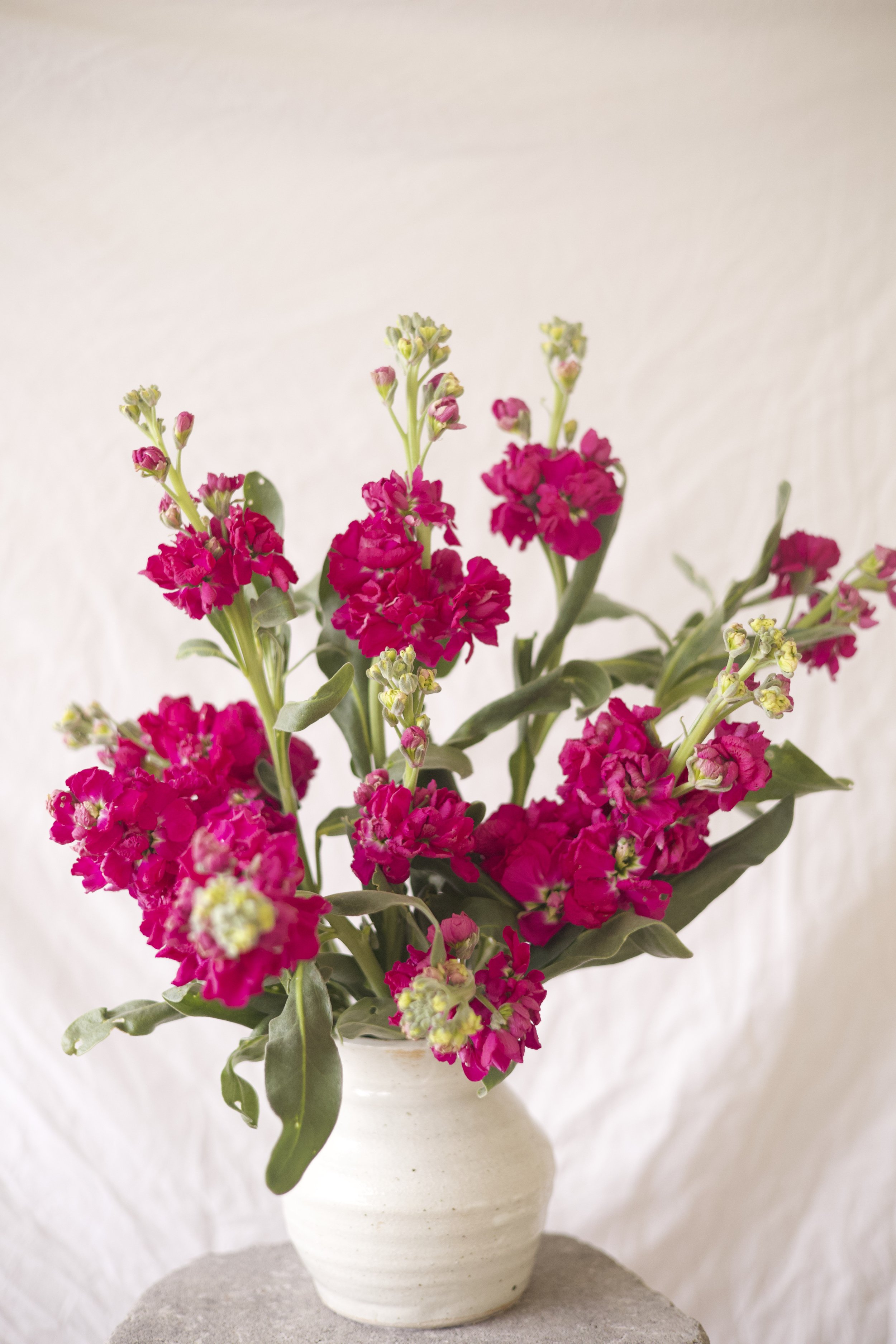 Image 1 of 10
Image 1 of 10

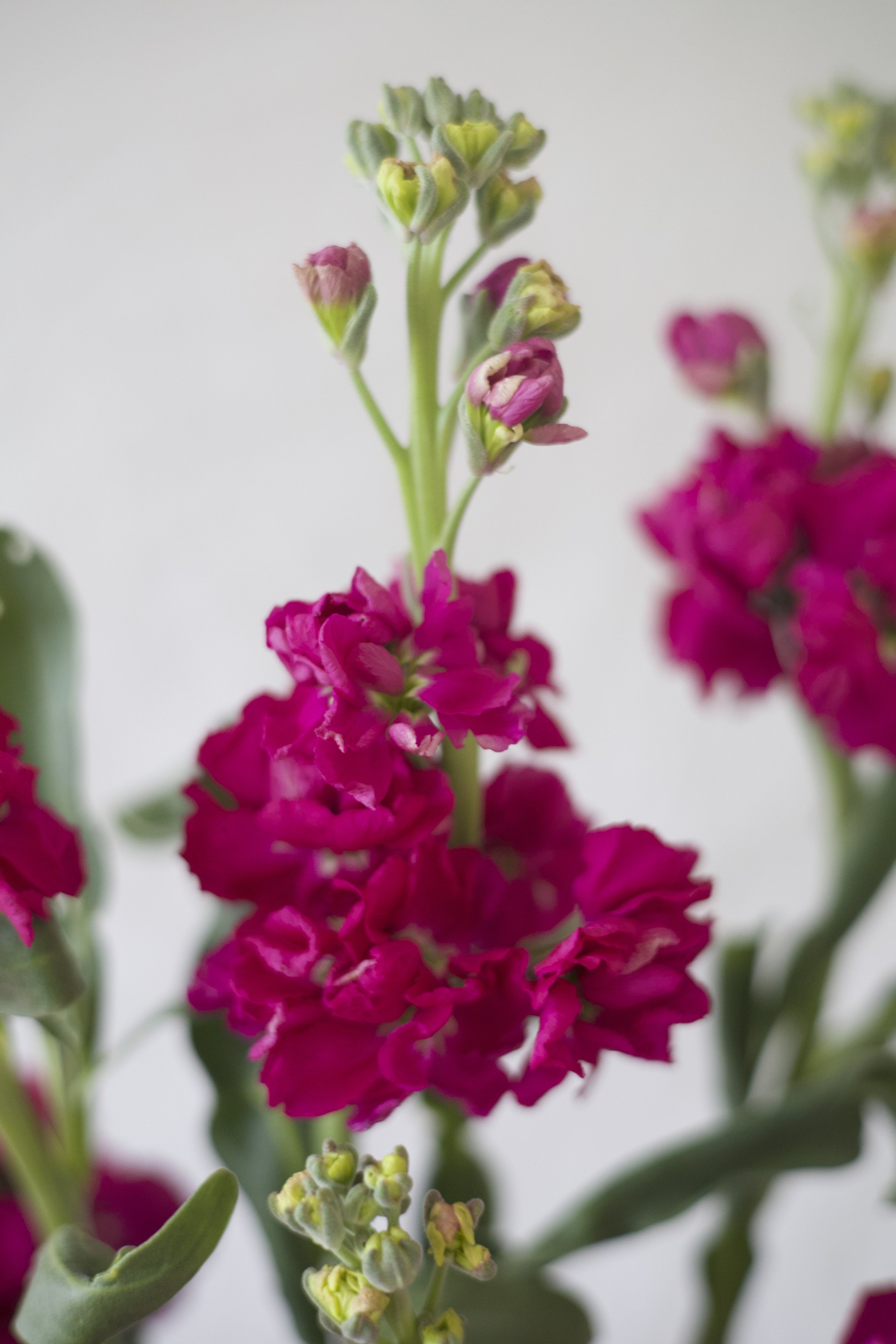 Image 2 of 10
Image 2 of 10

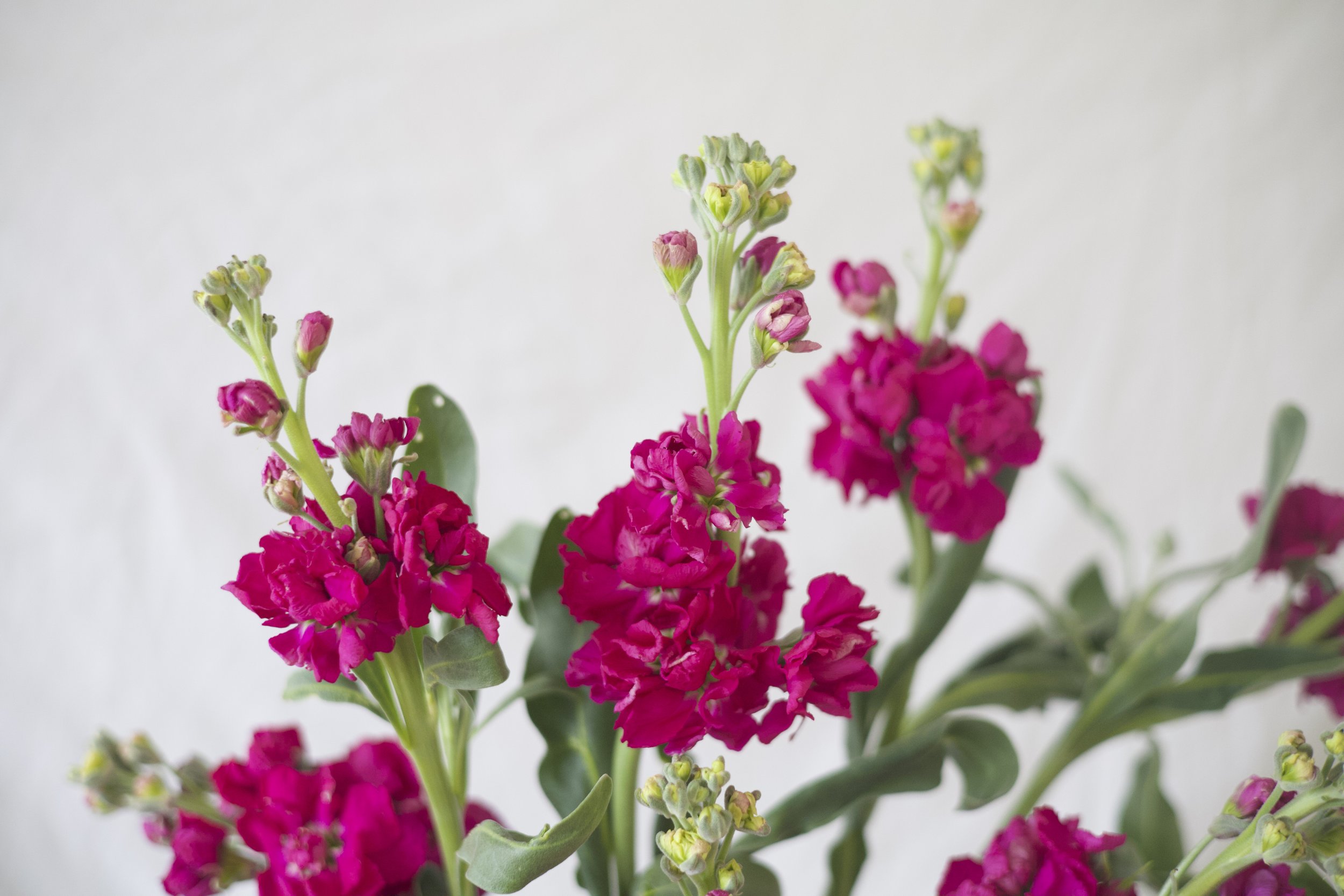 Image 3 of 10
Image 3 of 10

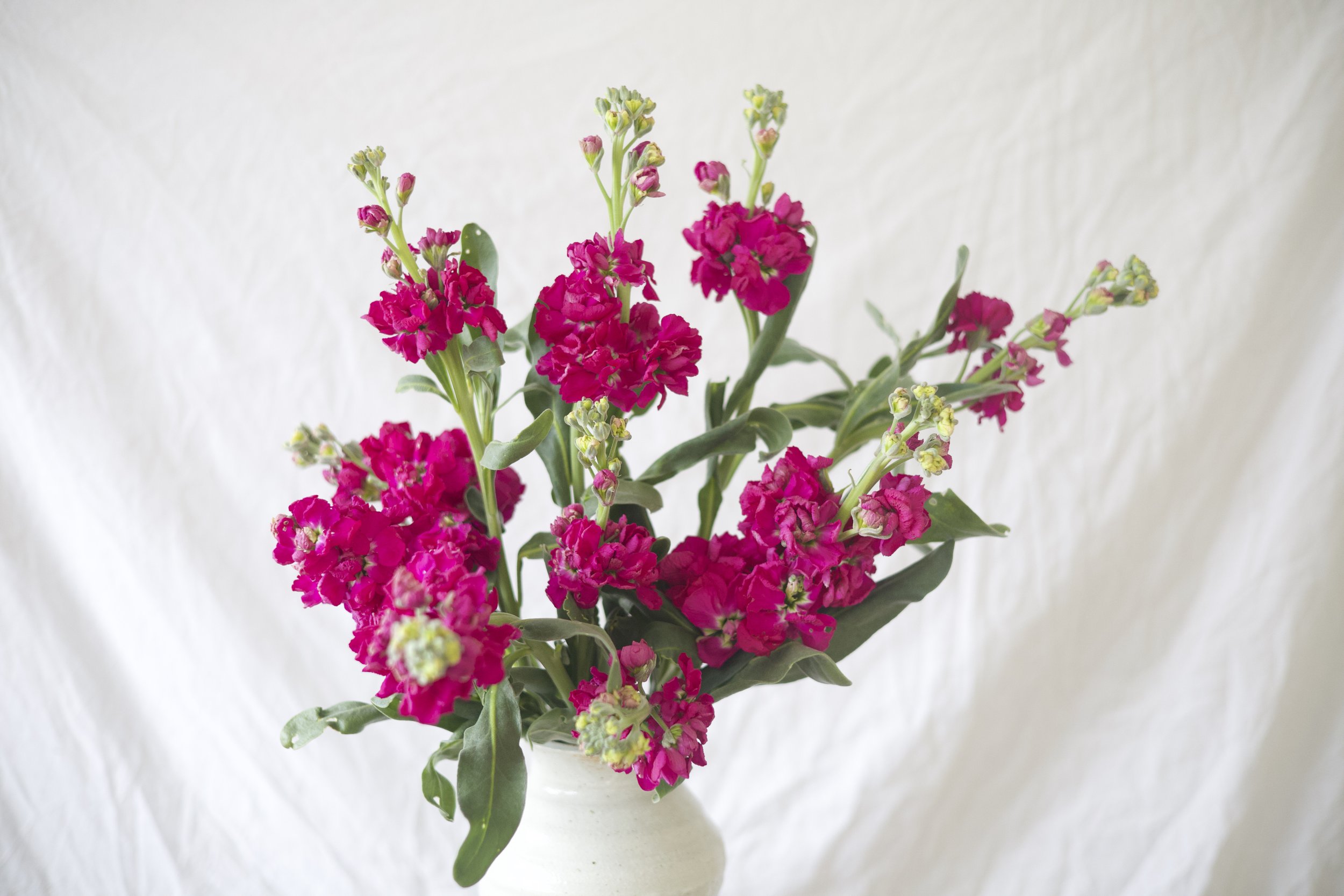 Image 4 of 10
Image 4 of 10

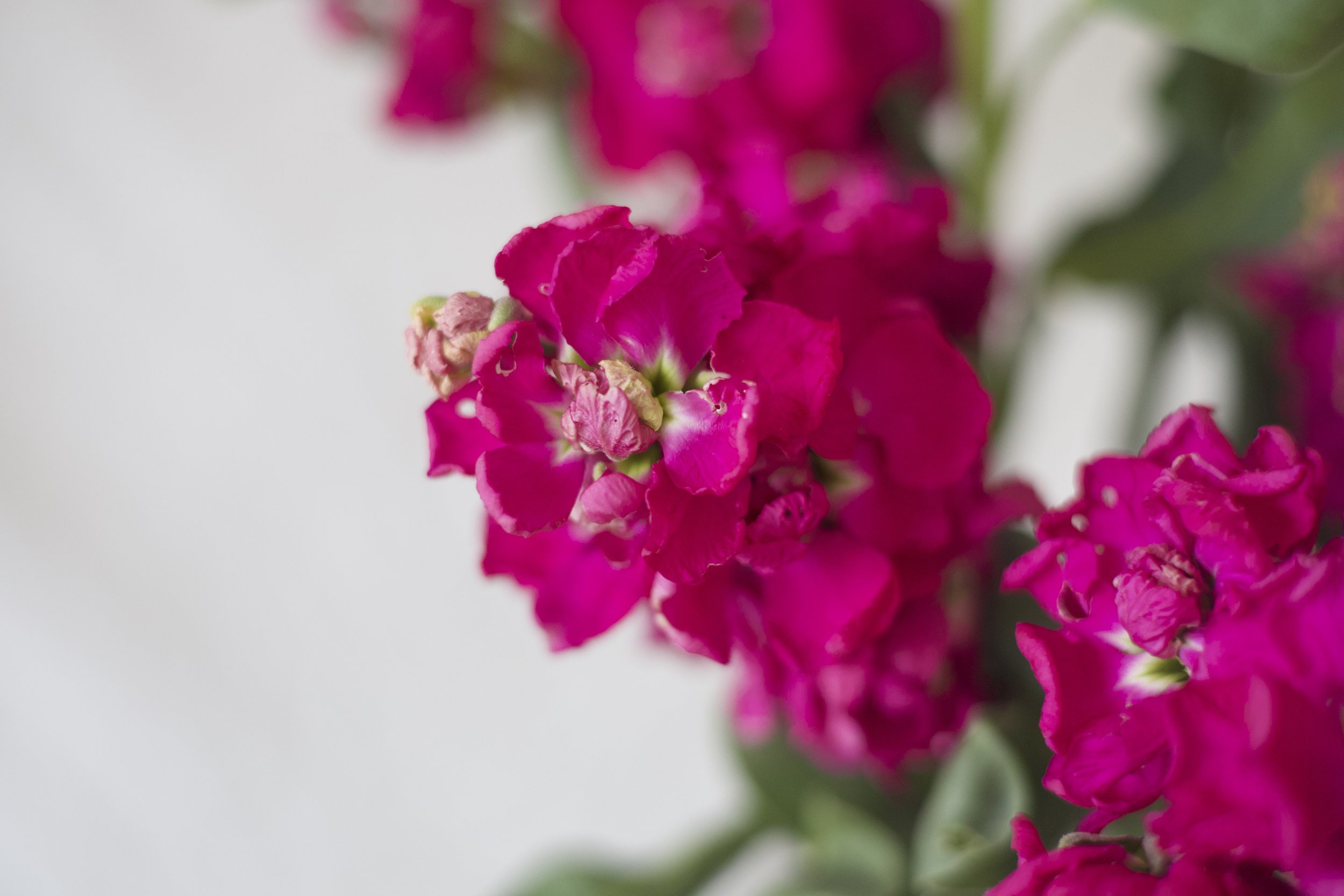 Image 5 of 10
Image 5 of 10

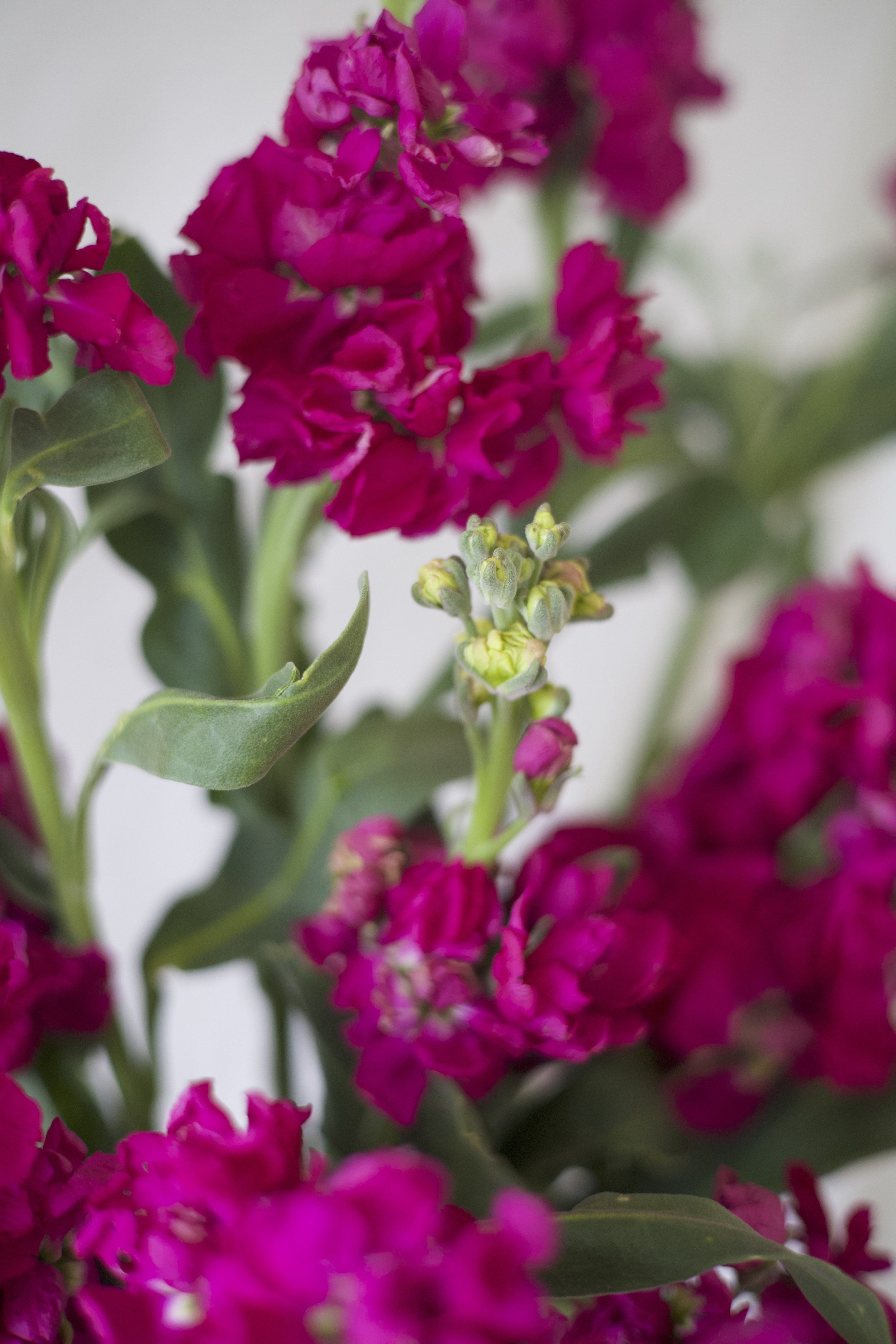 Image 6 of 10
Image 6 of 10

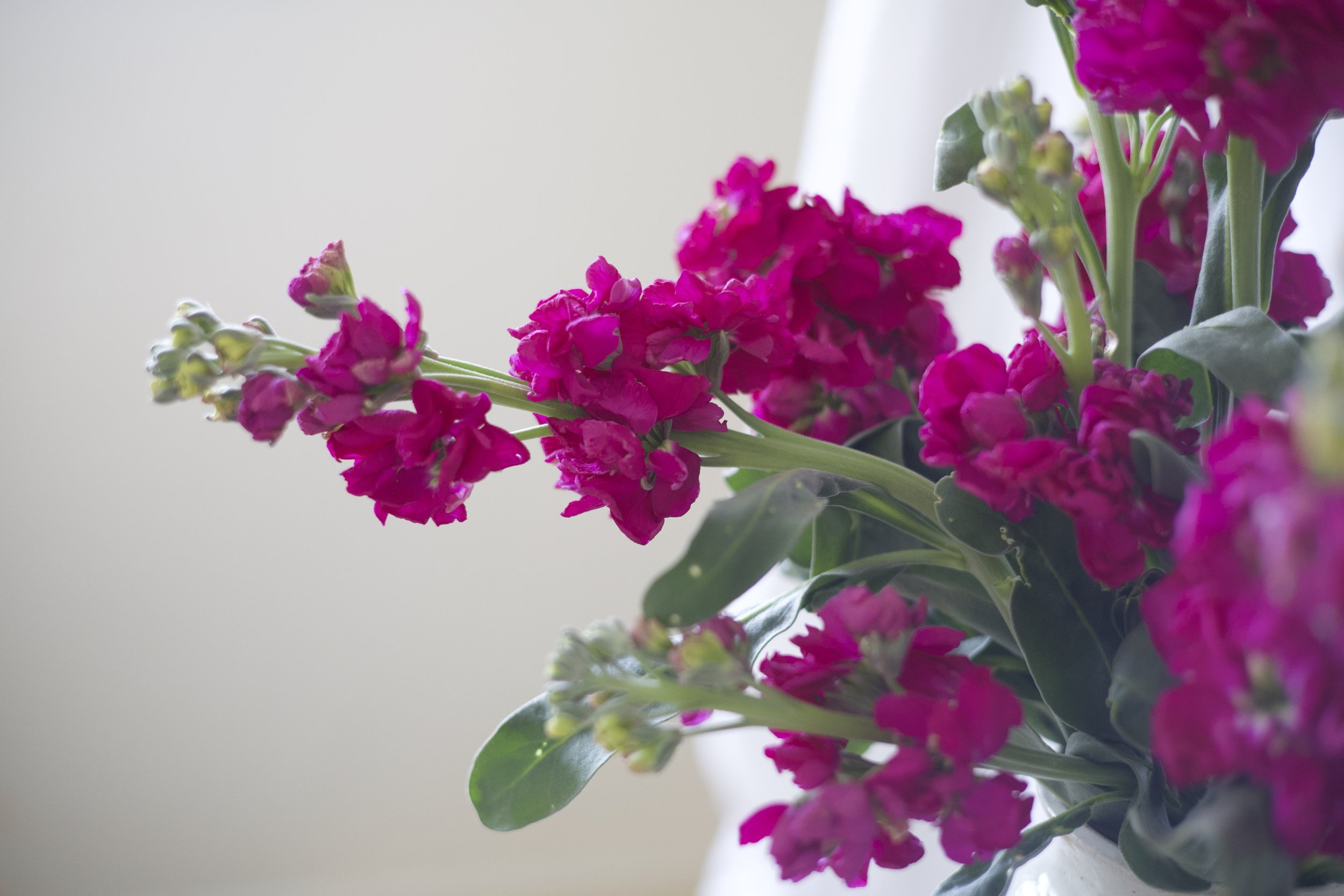 Image 7 of 10
Image 7 of 10

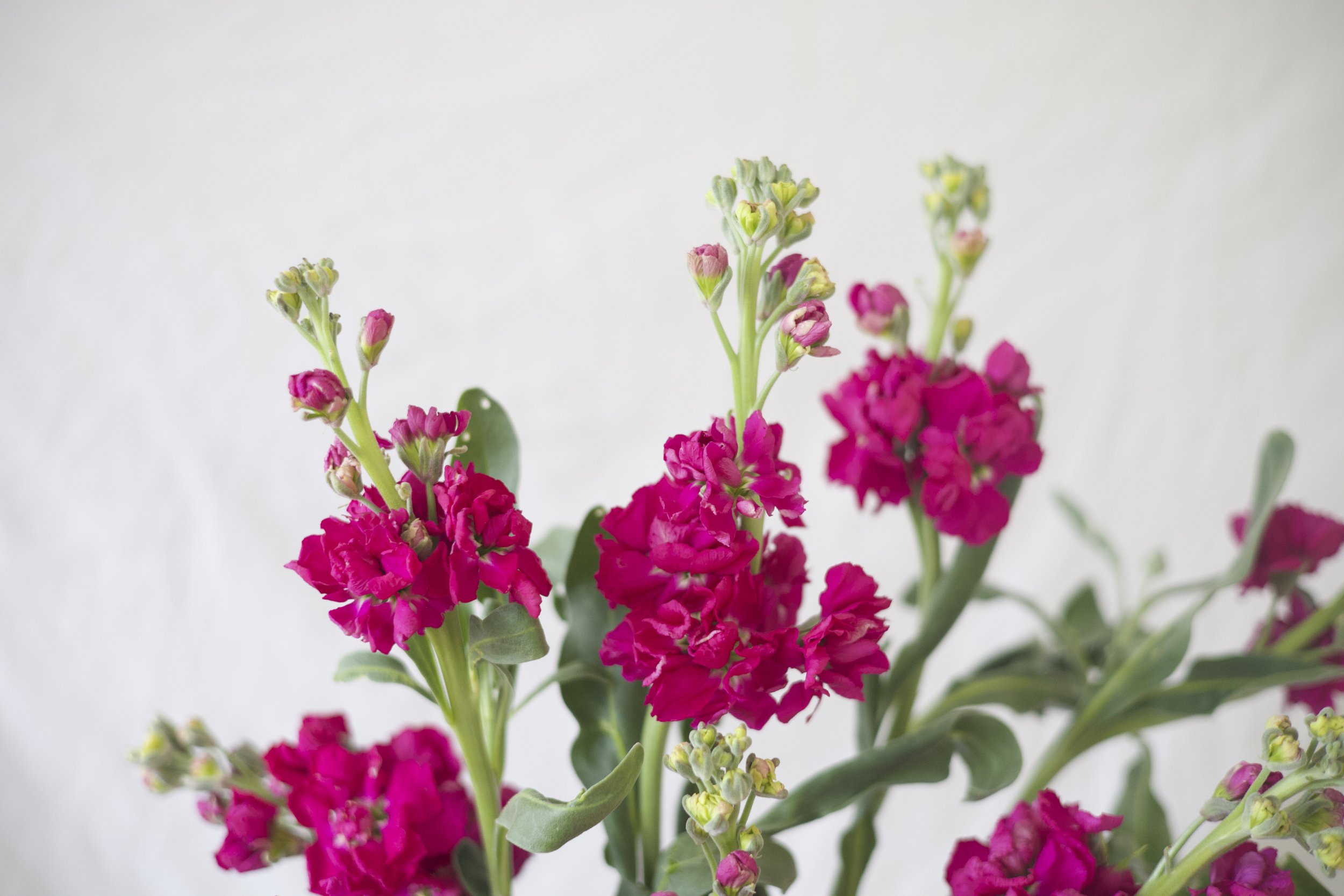 Image 8 of 10
Image 8 of 10

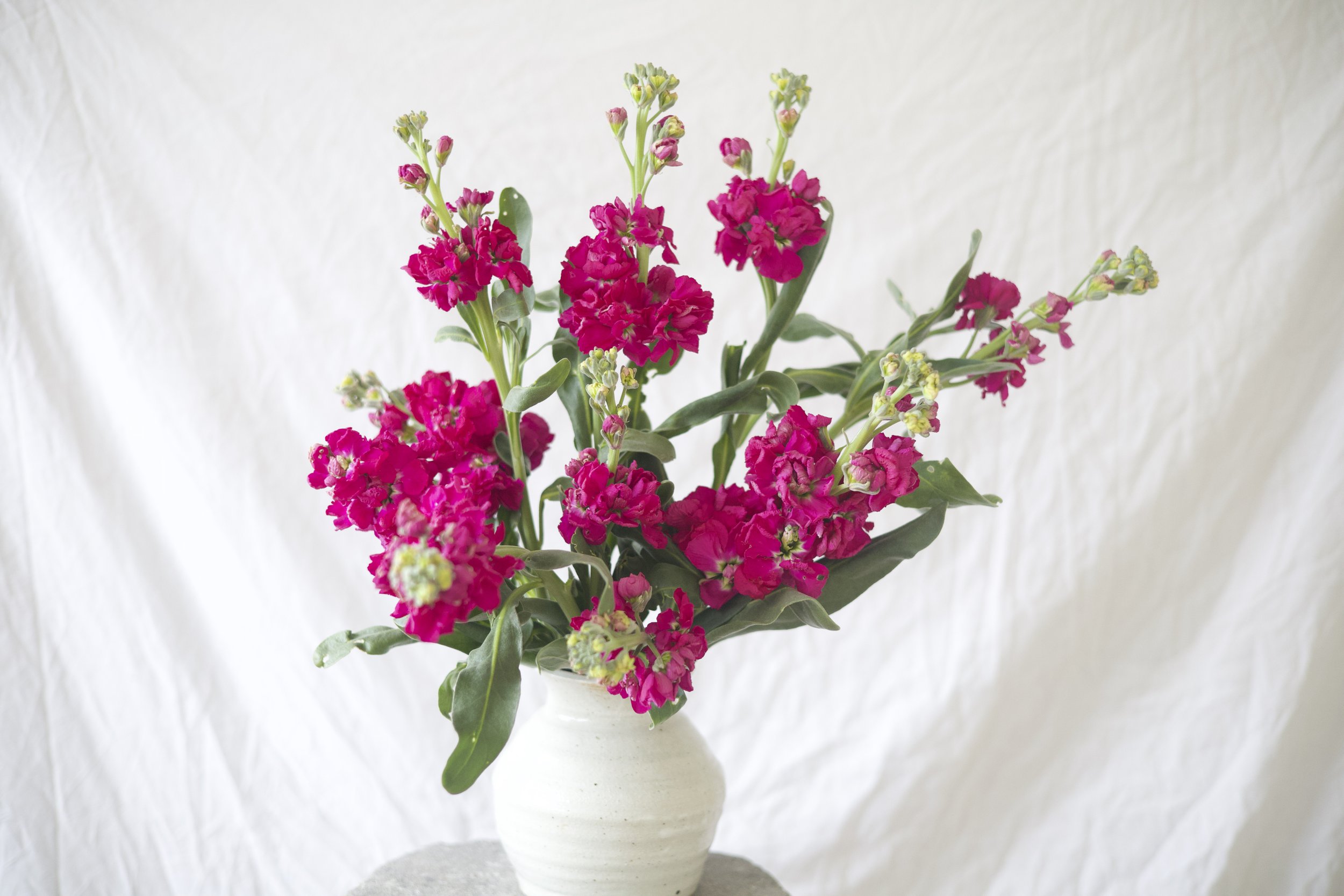 Image 9 of 10
Image 9 of 10

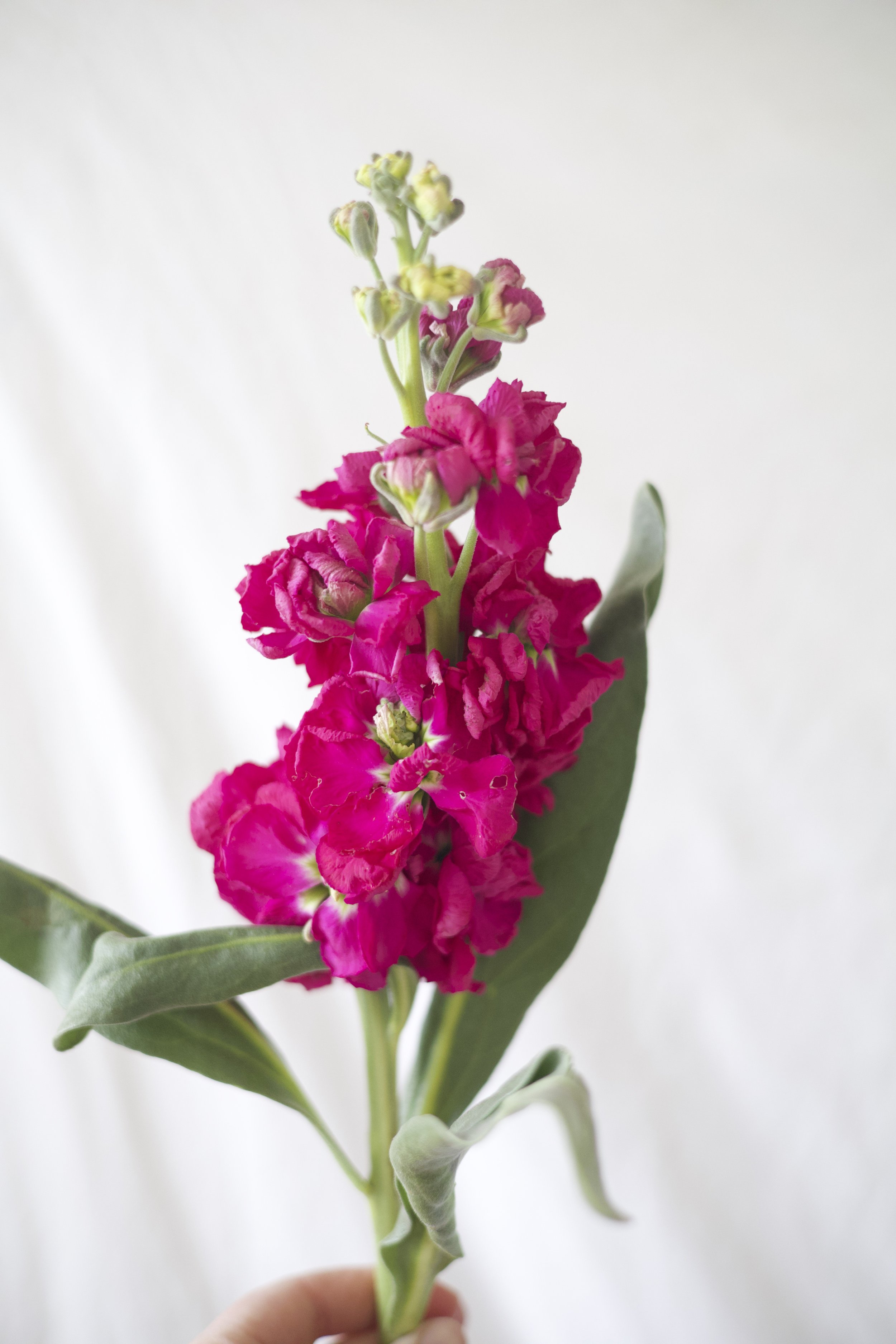 Image 10 of 10
Image 10 of 10











Stock Crimson
Matthiola incana
Stock Carmine is exceptional for early-spring and late-fall blooming. The tall stems add color to containers, gardens, and cut flower arrangements. Flowers attract a variety of pollinators and have a very sweet and spicy scent and are edible with a sweet clove flavor.
Seed Count: 75 Seeds
Plant Height: 24-32”
Light Requirements: full sun
Soil Preference: average fertility and moderate water conditions, pH 6-7
USDA Zones: 2-6 (annual), 7-10 (tender perennial)
How to Grow
Germination: 7-14 days at 60-75F, light required for germination
Seeding Depth: 1/4” depth
Plant Spacing: 6-9”
Days to Maturity: 90-100 days
Early-Season Seeding: Start seed indoors 5-6 weeks before the last frost date, transplant after the danger of frost has passed. Direct seed 3 weeks before the last frost date if moisture can be provided consistently.
Late-Season Seeding: Start seed indoors or direct seed outdoors at least 12 weeks before the first frost date.
Growing Tips: Succession planting is recommended to lengthen the harvest window. Plants will produce double or single flowers, if only double are desired then select plants when the first set of leaves have emerged. If the first two leaves are fused then plants produce single blooms. Unfused leaves typically produce double blooming flowers. It is recommended to harden off transplants before planting them outside. Pinching is not required for this crop and if the flower bud is pinched off they won’t flower.
Cut Flower: Harvest when 3-5 flower buds are open and remove a majority of the leaves for a vase-life of 8-10 days. Water and flower food will need to be replaced every few days for maximum vase-life.
Matthiola incana
Stock Carmine is exceptional for early-spring and late-fall blooming. The tall stems add color to containers, gardens, and cut flower arrangements. Flowers attract a variety of pollinators and have a very sweet and spicy scent and are edible with a sweet clove flavor.
Seed Count: 75 Seeds
Plant Height: 24-32”
Light Requirements: full sun
Soil Preference: average fertility and moderate water conditions, pH 6-7
USDA Zones: 2-6 (annual), 7-10 (tender perennial)
How to Grow
Germination: 7-14 days at 60-75F, light required for germination
Seeding Depth: 1/4” depth
Plant Spacing: 6-9”
Days to Maturity: 90-100 days
Early-Season Seeding: Start seed indoors 5-6 weeks before the last frost date, transplant after the danger of frost has passed. Direct seed 3 weeks before the last frost date if moisture can be provided consistently.
Late-Season Seeding: Start seed indoors or direct seed outdoors at least 12 weeks before the first frost date.
Growing Tips: Succession planting is recommended to lengthen the harvest window. Plants will produce double or single flowers, if only double are desired then select plants when the first set of leaves have emerged. If the first two leaves are fused then plants produce single blooms. Unfused leaves typically produce double blooming flowers. It is recommended to harden off transplants before planting them outside. Pinching is not required for this crop and if the flower bud is pinched off they won’t flower.
Cut Flower: Harvest when 3-5 flower buds are open and remove a majority of the leaves for a vase-life of 8-10 days. Water and flower food will need to be replaced every few days for maximum vase-life.
Matthiola incana
Stock Carmine is exceptional for early-spring and late-fall blooming. The tall stems add color to containers, gardens, and cut flower arrangements. Flowers attract a variety of pollinators and have a very sweet and spicy scent and are edible with a sweet clove flavor.
Seed Count: 75 Seeds
Plant Height: 24-32”
Light Requirements: full sun
Soil Preference: average fertility and moderate water conditions, pH 6-7
USDA Zones: 2-6 (annual), 7-10 (tender perennial)
How to Grow
Germination: 7-14 days at 60-75F, light required for germination
Seeding Depth: 1/4” depth
Plant Spacing: 6-9”
Days to Maturity: 90-100 days
Early-Season Seeding: Start seed indoors 5-6 weeks before the last frost date, transplant after the danger of frost has passed. Direct seed 3 weeks before the last frost date if moisture can be provided consistently.
Late-Season Seeding: Start seed indoors or direct seed outdoors at least 12 weeks before the first frost date.
Growing Tips: Succession planting is recommended to lengthen the harvest window. Plants will produce double or single flowers, if only double are desired then select plants when the first set of leaves have emerged. If the first two leaves are fused then plants produce single blooms. Unfused leaves typically produce double blooming flowers. It is recommended to harden off transplants before planting them outside. Pinching is not required for this crop and if the flower bud is pinched off they won’t flower.
Cut Flower: Harvest when 3-5 flower buds are open and remove a majority of the leaves for a vase-life of 8-10 days. Water and flower food will need to be replaced every few days for maximum vase-life.